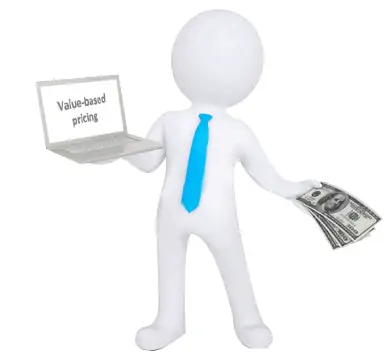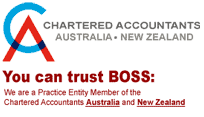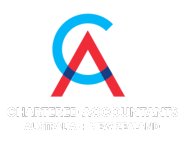Determining whether you are undercharging is quite straightforward. If all of your clients readily agree to your pricing without any hesitation, it indicates that even those who are typically more frugal perceive your services as a remarkable value for their money. When establishing your prices, it is imperative to consider the worth you bring to the table rather than solely focusing on providing a great deal to your clients at your own detriment.
Recognising your value
It is incorrect to perceive that you are merely selling services to your clients. In reality, what you are actually offering is the culmination of your years of experience which has aided previous and current clients in overcoming financial challenges or realising their financial aspirations.
Rather than selling services per se, you are essentially selling your expertise. The provision of services serves as a means through which you transfer your invaluable knowledge and proficiency to your clients. It is highly probable that you may not be charging an adequate amount for this valuable asset.
The impact of proper pricing
A study conducted by Michael Marn and Robert Rosiello, which was published in a 1992 edition of the Harvard Business Review, serves as a significant benchmark in the field of pricing. According to their findings, a mere 1% enhancement in pricing can lead to an impressive surge of 11.1% in operating profit. Conversely, improvements of 1% in variable costs, volume, or fixed costs only resulted in respective profit improvements of 7.8%, 3.3%, or 2.3%.
Therefore, although increasing your workload or reducing overhead expenses might have some impact on your bottom line, it is crucial to recognize that not properly valuing your expertise can ultimately result in leaving substantial amounts of money unrealized.

Value-based pricing
Value-based pricing is a strategic approach that focuses on determining how much clients are willing to pay for your expertise. Unlike pricing based on competitors’ rates, value-based pricing takes into account the fact that you may offer superior services compared to your competitors or serve a niche clientele. The key is to understand the perceived value of your services to your clients and set prices accordingly.
The wrong price
Accounting firms often pride themselves on their ability to provide advanced financial solutions to clients who may not be well-versed in the intricacies of the field. However, it is surprising how many of these firms continue to rely on outdated methods when it comes to developing their pricing strategies.
Instead of examining their prices directly, these firms attempt to increase revenue through other means. For example, they may take on a large volume of work, which requires additional staff and overhead costs. Alternatively, they may push their existing team members to work longer hours, ultimately leading to high turnover rates and additional expenses associated with hiring and training new employees.
Some businesses may attempt to reduce their expenses by paying their team less or cutting back on non-personnel-related overhead costs such as computers, furniture, or office space. However, these tactics will not help them retain the expertise that accounting firms are known for.
Furthermore, they may excessively write off time spent on client files because they don’t believe the client will pay the full amount. This approach focuses on selling work hours instead of delivering value, which is not what clients are seeking. Clients are interested in the value you can provide to their specific file and are willing to compensate accordingly.
Finding your price
It is essential to keep in mind that determining a value-based price is a continuous process. You have the freedom to adjust your prices as you progress.
Analyse the services and packages provided by your competitors. Do they offer additional services in their packages that you currently do not? Can you make modifications to your own services and packages to provide even greater value to your clients?
This not only provides a foundation for your pricing strategy, but it also reveals areas where you can outperform your competitors. It enables you to identify and capitalise on your strengths, which will form the basis of your marketing efforts.
Moreover, by analysing how your competition responds in certain aspects of value, you can pinpoint what matters most to your target clients. This allows you to concentrate on enhancing those specific areas of value instead of trying to cater to every client’s needs. By doing so, you can save yourself the trouble of competing on irrelevant points.
By tailoring your packages based on customer demand, you can increase their perceived value and subsequently raise your prices. Instead of guessing which packages will be successful, let your clients make the decisions for you.
Packages and services that are high in demand are seen as top-notch (allowing for higher prices), while those that are overlooked require additional value before they become profitable for your business.




